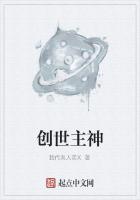In August 1811, we are told, she wrote a little play about landlords and tenants for the children of her sister, Mrs.
Beddoes.Mr.Edgeworth tried to get the play produced on the London boards.Writing to her aunt, Mrs.Ruxton, Maria says, 'Sheridan has answered as I foresaw he must, that in the present state of this country the Lord Chamberlain would not license THEABSENTEE; besides there would be a difficulty in finding actors for so many Irish characters.' The little drama was then turned into a story, by Mr.Edgeworth's advice.Patronage was laid aside for the moment, and THE ABSENTEE appeared in its place in the second part of TALES OF FASHIONABLE LIFE.We all know Lord Macaulay's verdict upon this favourite story of his, the last scene of which he specially admired and compared to the ODYSSEY.
[Lord Macaulay was not the only notable admirer of THE ABSENTEE.The present writer remembers hearing Professor Ruskin on one occasion break out in praise and admiration of the book.'You can learn more by reading it of Irish politics,' he said, 'than from a thousand columns out of blue-books.'] Mrs.Edgeworth tells us that much of it was written while Maria was suffering a misery of toothache.
Miss Edgeworth's own letters all about this time are much more concerned with sociabilities than with literature.We read of a pleasant dance at Mrs.Burke's; of philosophers at sport in Connemara; of cribbage, and company, and country houses, and Lord Longford's merry anecdotes during her visit to him.Miss Edgeworth, who scarcely mentions her own works, seems much interested at this time in a book called MARY AND HER CAT, which she is reading with some of the children.
Little scraps of news (I cannot resist quoting one or two of them) come in oddly mixed with these personal records of work and family talk.'There is news of the Empress (Marie Louise), who is liked not at all by the Parisians; she is too haughty, and sits back in her carriage when she goes through the streets.'Of Josephine, who is living very happily, amusing herself with her gardens and her shrubberies.' This ci-devant Empress and Kennedy and Co., the seedsmen, are in partnership, says Miss Edgeworth.
And then among the lists of all the grand people Maria meets in London in 1813 (Madame de Stael is mentioned as expected), she gives an interesting account of an actual visitor, Peggy Langan, who was grand-daughter to Thady in CASTLE RACKRENT.Peggy went to England with Mrs.Beddoes, and was for thirty years in the service of Mrs.Haldimand we are told, and was own sister to Simple Susan.
The story of THE ABSENTEE is a very ****** one, and concerns Irish landlords living in England, who ignore their natural duties and station in life, and whose chief ambition is to take their place in the English fashionable world.The grand English ladies are talking of Lady Clonbrony.
'"If you knew all she endures to look, speak, move, breathe like an Englishwoman, you would pity her,' said Lady Langdale.
'"Yes, and you CAWNT conceive the PEENS she TEEKES to talk of the TEEBLES and CHEERS, and to thank Q, and, with so much TEESTE, to speak pure English," said Mrs.Dareville.
'"Pure cockney, you mean," said Lady Langdale.'















